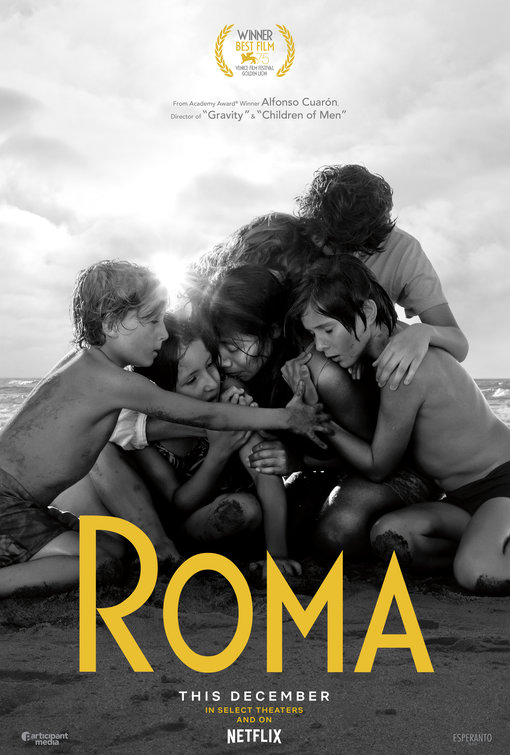How Did Liberty Fare at Oscars 2019?
 The 91st Academy Awards turned out to be a good night for liberty and individualism, although many would have been surprised based on the lead up to Hollywood’s most glamorous night. Strong buzz for The Favourite, Bohemian Rhapsody, Vice, and A Star Is Born suggested that movies featuring liberty and freedom as central themes would struggle. With the strong showings for Green Book and Roma, however, individual freedom grabbed a significantly larger share of the spotlight.
The 91st Academy Awards turned out to be a good night for liberty and individualism, although many would have been surprised based on the lead up to Hollywood’s most glamorous night. Strong buzz for The Favourite, Bohemian Rhapsody, Vice, and A Star Is Born suggested that movies featuring liberty and freedom as central themes would struggle. With the strong showings for Green Book and Roma, however, individual freedom grabbed a significantly larger share of the spotlight.
Green Book took home Oscars for Best Picture, Best Supporting Actor (Mahershala Ali), and Best Original Screenplay. (See my full review here.) The movie follows the true story of Don “Doc” Shirley, an African-American virtuoso classical pianist, as he travels from New York City into the Jim Crow South of the early 1960s. Knowing his personal safety will be at risk, Shirley hires Frank “Tony Lip” Vallelonga (Viggo Mortensen), a prejudiced bouncer from Brooklyn, as his driver and bodyguard. Tony takes the job because he is temporarily out of work, and he needs the money to support his family. The stereotypical roles are immediately flipped, and the screenplay builds on these tensions.
Green Book stands out for two reasons. First, the movie takes the unusual tack of showing the full range of outward racial prejudice during this period. While prejudice exists in Brooklyn (and Pittsburgh), the biases are more private, less visible, and less outwardly oppressive. As Shirley and Vallelonga travel into Indiana (a hotbod of early 20th century Klan activity), Kentucky, Tennessee, and finally Alabama, the threats become more overt and explicitly oppressive. The two are arrested when traveling through a “sundown city”–a municipality where local laws require blacks to be indoors by sundown—on their return to New York City.
Second, the movie is a full-frontal assault on identity politics. The entire movie revolves around Shirley and Vallelonga breaking down their own prejudices, confronting their own weaknesses, and developing personal bonds that transcend race and class. Shirley’s character is so integral to the plot and the story that relegating Mahershala Ali’s performance to Best Supporting Actor is artistically and stylistically questionable. Nevertheless, the movie puts individual dignity, respect, and freedom at the forefront of the story.
 The Mexican movie Roma entered the 91st Academy Awards with the 10 nominations, but many critics discounted its chances as a Spanish language film. The movie was awarded Best Director (Alfonso Cuaron), Best Foreign Film, and Best Cinematography. (My full review can be found here.) Beautifully filmed, every frame is a masterful piece of visual storytelling. But Roma is more than an art film. Roma’s wins are good for liberty.
The Mexican movie Roma entered the 91st Academy Awards with the 10 nominations, but many critics discounted its chances as a Spanish language film. The movie was awarded Best Director (Alfonso Cuaron), Best Foreign Film, and Best Cinematography. (My full review can be found here.) Beautifully filmed, every frame is a masterful piece of visual storytelling. But Roma is more than an art film. Roma’s wins are good for liberty.
Knowing more about the screenplay’s backstory in contemporary Mexican history turns a plodding, meditative movie into an intriguing, stunningly well-crafted piece of visual storytelling and social commentary.
Set mid-way through Mexico’s “Dirty War”—a systemic attempt by Mexico’s government to violently repress left wing, student, and pro-democracy movements—Roma is compelling social commentary. Mexico’s ruling party, the PRI (Institutional Revolutionary Party), was in the eclipse of what was a 71-year reign of one-party rule in Mexico. As support for popular democracy rose, the PRI’s tactics became more violent and oppressive. Opposition leaders “disappeared.” Paramilitary forces were used by the government to attack protestors. Two mass demonstrations in Mexico City led to hundreds of deaths by riot police: the Tlatelolco Massacre (at least 300 dead) in 1968 and the Corpus Christi Massacre (at least 120 dead) in June, 1971. The latter date is critical to Roma’s plot.
Knowing this backstory becomes essential to understanding the full power and majesty of Cuaron’s movie and the story that drives it. On the surface, the movie is about a domestic servant, Cleo, and her relationship to the family. Below the surface, Roma is about the transcendence of the respect for human dignity over middle-class privilege and the political tactics used to maintain the status quo. With the political backdrop of Mexico’s Dirty War, the meaning behind the dialogue between domestic workers, the moral bankruptcy underlying decisions made by Cleo’s boyfriend, the events surrounding the family’s visit to relatives who run a plantation in the rural Mexico, and the meaning behind the climatic scene involving a violent protest against the government become more clear and salient.
Most critics understandably interpret Roma as a story of quiet commitment and respect for human dignity. The movie follows the life of Cleo (Yalitz Aparicio), a live-in maid and nanny for an upper-middle-class professional family (with four children) in the Colonia Roma neighborhood of Mexico City in 1970 and 1971. As her employer’s marriage begins to disintegrate over infidelity, Cleo emerges as the heart and soul of the family, the “anchor,” despite her impoverished and uneducated background. When Cleo is faced with her own traumatic personal turn of events, Sofia (the wife played by Marina de Tavira) embraces her rather than turn her away. The story is, in fact, a moving example of human connection and support that crosses class, ethnic, and racial backgrounds. (Cleo comes from an indigenous native village in rural Mexico.)
Other Oscar winners deserve “honorable mentions” for promoting limited government in less straightforward ways. Bohemian Rhapsody (Best Actor for Remi Malek, Best Film Editing, Best Sound Editing, Best Sound Mixing) reminds us of the power of consumer markets in incentivizing and sustaining popular art. If Beale Street Could Talk (Best Supporting Actress for Regina King’s performance), also set in the 1970s, is a powerful statement of injustice in the criminal justice system that rings true today. Spike Lee’s BlacKkKlansman (Best Adapted Screenplay) is a powerful reminder of the way evil can disrupt mainstream lives even when it’s contained in small groups of dogmatists willing to use violence to achieve their warped vision of justice. The genre-busting Spider-Man: Into the Spider-Verse (Best Animated Film) reminds us we can all make a difference in the world around us. Vice (Best Makeup & Hairstyling) is a relentlessly partisan attack on Dick Cheney’s reign as Vice President on George W. Bush but highlighted the dangers of expanding executive privilege and undermining democratic processes.
Overall, defenders of freedom, individual liberty, and human dignity had a good night at the 2019 Oscars. (Readers interested in all my reviews of the Oscar nominees can find links to them here and here.)





